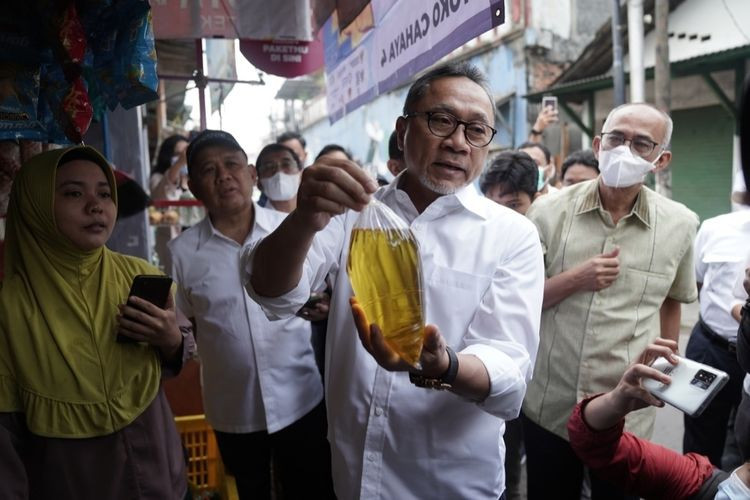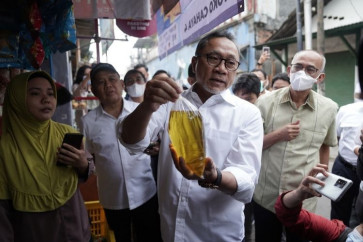Popular Reads
Top Results
Can't find what you're looking for?
View all search resultsPopular Reads
Top Results
Can't find what you're looking for?
View all search resultsCooking oil debacle ends but price volatility still looms
But since cooking oil is a basic staple food, the government should intervene to shield low-income groups and micro and small enterprises from the inflationary impact during the boom cycle.
Change text size
Gift Premium Articles
to Anyone
T
he public uproar over the punitively high cooking oil prices has stopped, not because of the effect of government price-stabilization policies but due to the decline in the global prices of edible oils driven by the combination of better harvests and weaker consumer demand caused by worries about economic recession.
According to the United Nations Food and Agricultural Organization, vegetable oil prices have been in a downward trend since June, driven by seasonal availability from new harvests in the northern hemisphere, improved crop conditions in some major producing countries and higher production prospects in Russia.
Fitch Ratings research has predicted that higher global vegetable oil output would drive a decline in crude palm oil (CPO) prices to below US$1,000/ton in the second half from the average $1,500 in the first half and the average $915 in 2021.
Zulkifli Hasan, the new trade minister, had nothing to do with the quiet cooking oil market seen now. He was just lucky to be appointed to abruptly replace Muhammad Lutfi in mid-June when the palm oil boom, which started in the second half of 2021 and escalated in February soon after the Russian invasion of Ukraine, entered a bust cycle and the trend of prices went down. Consequently, cooking oil prices have been falling as well.
Boom and bust is a common cycle in the commodity market.
But since cooking oil is a basic staple food, the government should intervene to shield low-income groups and micro- and small-enterprises (MSEs) from the inflationary impact during the boom cycle.
During the peak of the boom cycle between January and May 2022, the government resorted to distortive trade policies such as fixed retail price ceilings, a domestic market obligation (DMO) and total export ban from April 28 to May 23 to insulate the domestic markets from the skyrocketing prices.



















